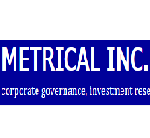
This month, we will focus on diversity again. This is because I believe that diversity raises the bottom line of a company. Diversity is deeply related to S and G of ESG, and it has a great impact on the transformation of a company’s culture. On the other hand, it seems that many Japanese companies are more keen on “E” than “S” and “G” in their ESG initiatives, because “E” is an area that is relatively easy to tackle for Japanese companies that have a successful experience of setting technical numerical targets such as CO2 emission targets and improving the technical level through bottom-up efforts led by engineers to eventually achieve high targets. Even in the S and G areas, it should be possible to set clear goals and set timeframes for improvement without setting numerical targets. In several articles on diversity, I have mentioned the importance of respect for human rights, or in other words, understanding diversity, in order to build an environment where everyone can live comfortably, whether in a company or a society where various people are involved. On Thursday, August 19, I attended the analyst meeting of Monogatari Corporation (3097), which is engaged in advanced diversity initiatives as mentioned in my previous article, to discuss its financial results for the fiscal year ending June 30, 2021, and I would like to update you on the company’s diversity initiatives.
Monogatari Corporation is one of the listed companies that is proactively working on diversity. As of June 2021, the company had 126 employees from 13 countries (10% of the total workforce), an increase from 105 employees from 11 countries (9.5% of the total workforce) as of December 2020. In the past six months, the number of store managers with international (foreign) nationality has increased significantly from 4 to 18. In addition, the company is also working to support the activities of LGBTQ employees, with training for all employees starting with basic knowledge and how to respond in the workplace and sharing the idea of understanding and supporting all sexualities. Also, the company has introduced a “Life Partnership System” that allows same-sex partners to receive the same treatment as legal marriages within the company. In Japan, where same-sex marriage is not yet legally recognized, this system allows LGBTQ employees to receive the same treatment as legally married couples in the company.
At this analyst meeting, the Company stated that in its newly formulated “Long-Term Management Vision,” under the management vision of “placing the dignity of the individual above the dignity of the organization,” it has set forth (1) expression of diversity, (2) value created by the expression of diversity, and (3) acceptance of diversity as its “goals. While differentiation is essential for the sustainable growth of a company, Mr. Kato, President of the food service company, said, “Big differentiation (type of operation) that causes differentiation through mechanism and structure is easily imitated, but accumulation of small differentiation becomes big differentiation and is difficult to catch up. For the latter type of differentiation, it is necessary for individuals to express themselves in order to generate diverse discussions within the company and create new value. I would like to create a corporate culture that spreads the value of the individual to the entire company.”
I wanted to know more about the background behind this, so I asked her about it and she replied, “If we become a company that accepts diversity (understanding that everyone is different and has different ways of thinking and taking care of themselves), rather than just a company that is comfortable for women, LGBTQ and challenged employees, minorities will be able to express their diversity without fear. In this way, we can create new value because we can create a culture of discussion with others.” “If only women discuss the empowerment of women with everyone, not just the parties involved, encourage developmental discussions and often lead to useful conclusions. For example, when we changed the restrooms in our store to “men’s”, “women’s”, and “everyone’s” restroom symbols, we were able to discuss and come to a conclusion from the perspective of customers and other people.” Diversity is steadily taking root in the corporate culture, and he seemed to have a good feeling about the results. The case of the restroom may be a small step, but it means that we have already started to create an environment where diversity is accepted and where diversity can be expressed. Compared to the company’s efforts, how many companies do not even have a policy in place, or their policies are just “pie in the sky”? The company is thinking about how to develop diversity initiatives in its own company’s corporate activities, discussing the employees together, and using the conclusions in its own words. We are thinking about how to develop diversity initiatives in our own company’s corporate activities, discussing them together, and using the conclusions in our corporate activities. President Kato believes that the corporate culture is a differentiating force that creates corporate value. I believe that diversity makes a company stronger as well.
The table below shows the correlation matrix for July 2021 for 1,722 companies in the Metrical Universe. The female director score shows a positive correlation with ROA (actual) with significance.

Aki Matsumoto, CFA
Please see detail research the following links.
http://www.metrical.co.jp/
Please feel free to contact the below email address if any interest or query.
Aki Matsumoto, CFA
Executive Director
Metrical Inc.
akimatsumoto@metrical.co.jp
http://www.metrical.co.jp/jp-home/
